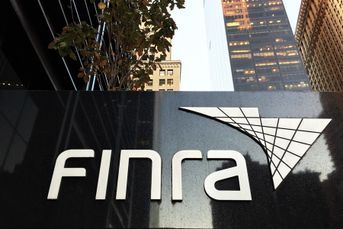How much are nontraded REITs really worth?
 Nontraded REITs
Nontraded REITs
Advisers don't like it when REIT valuations bounce all over the place
During the credit crisis of 2008, the bottom fell out of many nontraded real estate investment trusts, and financial advisers and customers learned that a REIT’s stated, estimated value, or what showed up on clients’ account statement, and the real value, what the REIT was worth on the street at that exact point in time, could be miles apart.
Nontraded REITs are illiquid securities, meaning that they are opaque and not priced daily by the market. Advisers sell them to investors looking for income and yield; in the past, nontraded REITs carried steep commissions, but the industry has moved away from that compensation model for the past few years.
But nontraded REIT valuations a decade or so ago were at times so shockingly incongruous from one day to the next that advisers and clients simply learned to not put any faith in them.
Remember Inland Western REIT? Advisers started selling it at $10 per share in 2003 and it raised $4.9 billion to invest in commercial real estate. When it went public in 2012 and re-christened itself Retail Properties of America, the REIT’s equity value had dropped to about $3.40 a share, a disaster for advisers and investors.
Or how about CNL Lifestyle Properties? Launched in 2004 and sold at $10 per share, the REIT’s estimated value kept sinking, to the dismay of advisers and investors, first to $7.31 in 2012 and then to $6.85 by the end of the following year. In the first quarter of 2015, the CNL REIT’s board signed off on a value of $5.20 per share.
What type of reverse financial alchemy was this? Investment managers were turning what appeared to be nontraded REIT gold into real estate lead.
The situation got so bad that even the regulators of the Financial Industry Regulatory Authority Inc., more of a bureaucratic than proactive bunch, sat up and took notice. Industry rules had allowed nontraded REITs and other nonliquid investments to list an original share price on the client account statement, even for years after the original sale.
After much negotiating with the brokerage and REIT industries, Finra in 2016 implemented a new rule for broker-dealers that intended to give investors a clearer picture of what they are paying for investments: a change to customer account statements regarding the value of illiquid investments such as nontraded REITs.
All kinds of real estate investments, not just nontraded REITs, tend to buckle in recessions or economic slowdowns, and the lack of shoppers and travelers during COVID-19 is hurting retail real estate and hotels. Businesses shut down and investors see REIT dividends cut and values of securities drop. Leverage, so sweet to real estate investors during a buying binge, becomes a millstone.
And it’s been a volatile year for REIT investors. Vanguard Real Estate Index Fund ETF shares fell 39% from the start of the year through the COVID-induced market selloff of February and March but has bounced back, with shares closed at $84.84 on Wednesday, down around only 7% for 2020.
BIZARRE VALUATIONS
Has the bizarre wizardry of REIT valuations resurfaced during the mess of the pandemic?
New York City REIT Inc. (NYC), managed by the Nicholas Schorsch-led partnership AR Global, has taken a severe hit to its share price since August when it listed on Nasdaq. Originally sold at $25 per share in 2013, New York City REIT had a 2.43-to-1 reverse stock split in July before its listing. Its shares on Wednesday closed at $9.75.
Meanwhile, Phillips Edison & Co. Inc., a nontraded REIT with $4.7 billion in assets, has most recently reported an estimated value of $8.75 per share but is currently offering investors who want to cash out right away and sell back to the company $5.75 per share. A roll-up of a few REITs, Phillip Edison shares were sold at the industry standard of $10.
“No one is compelled to take it, but it feels funky when you do a lowball offer on your own investors,” said Kevin Gannon, CEO of Robert A. Stanger & Co. Inc. “I’m not a huge fan of the strategy, but it’s a better price than the secondary market. The reps don’t like it.”
Meanwhile, Phillips Edison, which focuses on buying grocery store anchored strip malls and shopping centers, plans a 1-to-4 stock split in March, boosting its estimated share value from the previously mentioned $8.75 to $35.
The bouncing around of estimated values at the REIT is not financial sorcery but stems from careful planning, said Michael Koehler, vice president of investment relations, in an interview Tuesday.
“We did the estimated share value process after the first quarter this year, and the board established it at $8.75, down from $11.10 per share,” Koehler said. “The big impact was COVID [on the real estate portfolio].” Cash flow from the retail properties is down, he said. In March, the company said it was halting its monthly distribution (think: dividend) to investors, but last month said the distribution was starting again in 2021.
The company worked to be “transparent” about the process, he said, adding that less than 2% of the REIT’s share could be bought back under the current offer. And the 34% decline in the $5.75 per share value for the buyback is in line with shopping center REIT peers that are publicly traded and seen net asset values drop during the pandemic.
The planned stock split has the intention of bolstering shares of the REIT for a potential sale sometime in the future, he explained. The company’s tender offer for the shares closes on Dec. 15.
REIT REACTIONS
That all makes sense and highlights Phillips Edison’s planning. But what do financial advisers make of the REIT’s estimated value bouncing around this year?
“The feedback has been across the board, with savvier, smarter advisers seeing it as a good thing, as a benefit to investors that stay invested,” Koehler said. “But some advisers don’t like it.”
Financial advisers disliked ricocheting REIT values after the 2008 credit crisis, and they don’t like them during the 2020 pandemic. If they are going to invest in nontraded REITs for their clients, they should be prepared for a potentially bumpy ride.
Learn more about reprints and licensing for this article.







